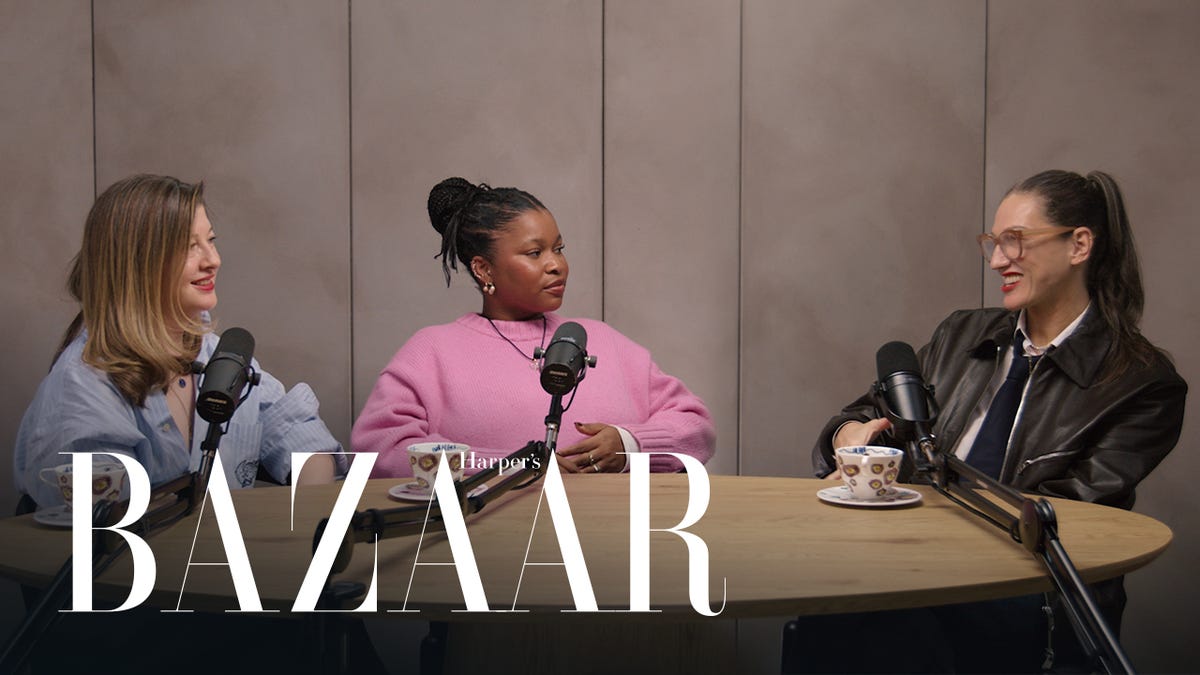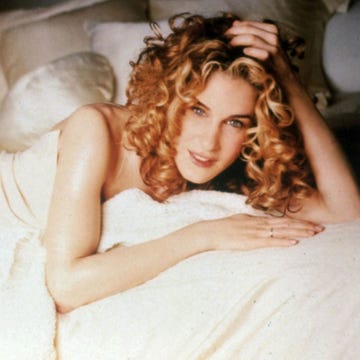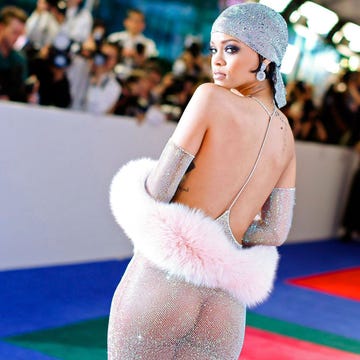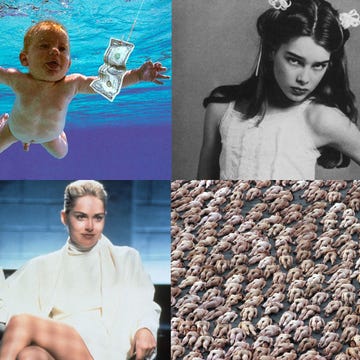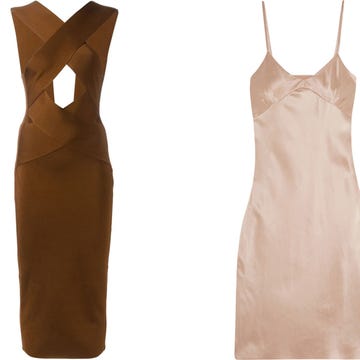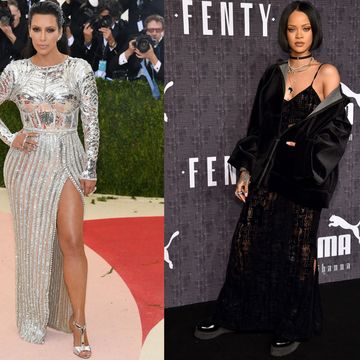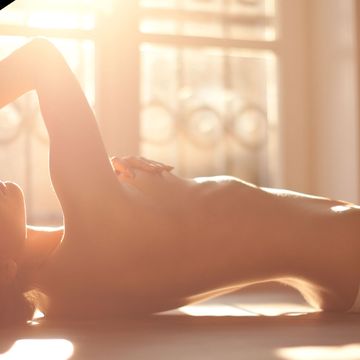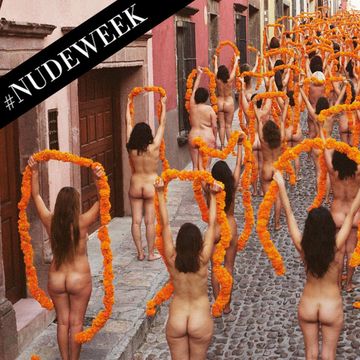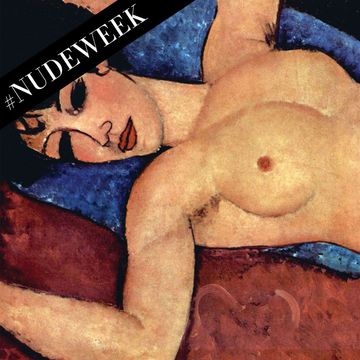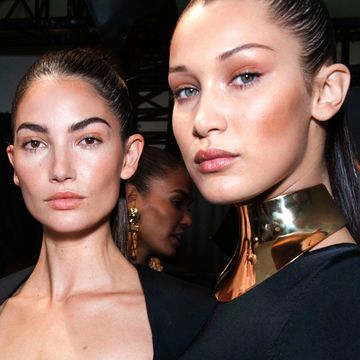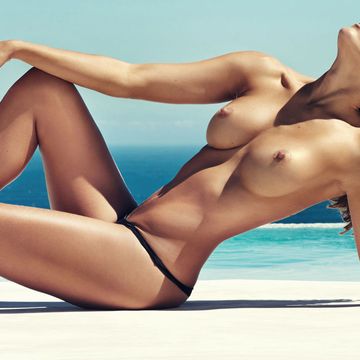As part of Bazaar.com's week-long issue discussing all things nude, we investigate if women should have the right to go topless in public.
In1934 it was still illegal for men to show their nipples in public. This led to a mass arrest of topless men in New Jersey and a handful of $1 fines given to those who dared to bare their chests on Coney Island, until finally, in 1936, the guardians of national decency relented, giving men the right to go topless in public. Eighty years later, the sight of a topless man has gone from being regarded as lewd and obscene to "utterly ordinary"—something that Alethea Andrews, founder of New York's Outdoor Co-Ed Topless Pulp Fiction Appreciation Society, hopes women will, one day, experience for themselves.
"We're used to seeing men's bare chests in public, but a century ago that was roughly as scandalous as a woman's bare chest today," Andrews explains. "At some point, men insisted on their right to bare their chests, and over the course of a generation, it has become the new normal. Hopefully the same will happen for women. It will just take time."
In New York, along with Hawaii, California, Maine, Ohio, and Texas, it is legal for a woman to be topless anywhere a man is allowed to do the same. However, women continue to be harassed by police for "public indecency" or "disorderly conduct" if they are spotted with their tops off and refuse to cover up. Meanwhile in Indiana, Utah and Tennessee, there is a complete ban on exposed female chests at any time; and in states like New Jersey, a topless woman may be arrested for "lewd" behavior or "endangering the welfare" of minors.
[instagram ]https://www.instagram.com/p/BEzHQ7MlYnK/?taken-by=freethenipple&hl=en[/instagram]Last year, four male New Hampshire state representatives proposed a bill that would make it a misdemeanor for women to show their nipples in public with "reckless disregard" for others. Though the controversial bill, which stated that women could not "purposely expose the areola or nipple of her breast or breasts in a public place," was vetoed 18-0 in March, state representative Brian Gallagher continues to defend the bill, saying it was introduced because conservative mothers were concerned about "how that behavior would impact their children."
"The concern was that our values in society are being challenged from so many different areas, and these moms and grandmas who were trying to enjoy a public space—their liberty to enjoy it—was being challenged," Gallagher says. "We as individuals, men and women, we are different. We are biologically different people. In our society today, we should still try to keep some of the traditional values and norms that many of us older folks have become accustomed to. We have kids and grandkids, and they are impressionable. If women can be topless on a beach, then you have to take into account places like public schools. There are many concerned people here that don't want [exposed breasts] in front of their children."
Lina Esco, the founder of Free the Nipple, doesn't buy into this line of reasoning. "What is the first thing a child connects with and depends on when they are born? The nipple," she says. "At what point does it become obscene? We're living in a culture that makes money off sexualizing women, sexualizing a part of the body that is there to nourish children. Men telling us we need to cover up, that we're indecent? It's hypocrisy."
[instagram ]https://www.instagram.com/p/-aluk9KVqB/?taken-by=dolphindylan&hl=en[/instagram]According to Dr. Mandi Silverman, a clinical psychologist at the Child Mind Institute, it is a parent's reaction to seeing a topless woman that leaves the largest impression on children: not the act of seeing a bare chest itself. In fact, the Manhattan-based psychologist says that seeing breasts in public can be positive for a child's development, if discussed openly. "There are two conversations to have when it comes to nudity. First, you want to talk to your kids about your family values and expectations. Second, you want to address what they might see out in the world that [may not be] in line with your family values and expectations," she says. "Parents should have an open dialogue with their children. From a young age, you want to make your children aware that they can come to you with questions and that you'll do your best to answer them." Paul Abramson, a psychology professor at UCLA who co-authored an 18-year study which tracked early childhood exposure to parental nudity, actually found beneficial outcomes such as increased self-esteem and sexual knowledge. And for young girls specifically, being exposed to different body types in the form of bare breasts can "help them grow up to be body positive," adds Dr. Silverman.
"Really, the bottom line is that it's become embedded into our psyche that boobs equal sex, when really, boobs equal human," says Elizabeth Siematkowski, co-founder of Topless Blading, a social movement which aims to "inspire people to do what they love regardless of social stigma and to express themselves regardless of gender." Siematkowski, who lives in Buffalo, New York, adds that the "over-sexualization of the female body" in America "needs to change." Esco agrees, arguing that a topless woman should no longer be classified as "nude," and that labelling her as such is part of the problem. "If a man is topless, that is not considered nudity. Likewise, a woman being topless should not be considered nudity. When a woman is showing her vagina, and a man his penis, that's nudity. Conflating the term nudity with toplessness, and therefore toplessness with a sexual act, is part of the problem."
Indeed, in its official community guidelines, Instagram defines nudity as "photos of female nipples," along with digitally-created content that show sexual intercourse, genitals, and "close-ups" of fully-nude buttocks. "Photos of post-mastectomy scarring and women actively breastfeeding are allowed," it specifies. Meanwhile Apple, which is often blamed for the censorship of topless women on social media apps, simply states that "apps containing pornographic material, defined by Webster's Dictionary as 'explicit descriptions or displays of sexual organs or activities intended to stimulate erotic rather than aesthetic or emotional feelings', will be rejected."
Andrews, who first started the Outdoor Co-Ed Topless Pulp Fiction Appreciation Society six years ago, believes it is important that people stop seeing women's bodies as "inherently" sexual. "A man lying shirtless in the grass or strolling through Central Park might have an 'attractive body,' but his exposing it isn't seen as a sexual act—nor is it justification for ogling, catcalling and worse. But if a woman even goes out in something tight or low-cut—never mind with nothing on at all above the waist—it's seen as sexual, even immoral. Women shouldn't have to choose between being covered and being sexual," Andrews says, likening this to body shaming of the worst kind: "What a terrible lesson it imparts to young women when they're told their brothers can run around in the sun with their chest exposed, but their own chests and nipples have to be hidden because men might see them? How could a girl possibly come away thinking anything other than that her body is shameful or dangerous—or in some way, 'wrong'?" Here, Esco adds: "Women are getting raped and molested every single day. Were they walking around topless? No, they were fully dressed and they still get raped. We need to stop making excuses."
[instagram ]https://www.instagram.com/p/BEW2TNIFYp6/?taken-by=freethenipple&hl=en[/instagram]Gallagher admits that, "quite honestly," he doesn't understand "that argument"—that banning women from showing their nipples in public can speak to body shaming, slut shaming, and as Esco puts it, "society's rape culture."
"Maybe because I'm not a female I don't understand that particular perspective," he hypothesize, before adding that he welcomes the "different" point of view. "That's the healthy thing about democracy, being able to take a different position from someone else on a challenging topic. As these norms are challenged or addressed, we do have the ability to say 'Gee, this isn't what I'm accustomed to, and we're not comfortable.' We should have a right to express our disagreement."
But for Esco, it's not about making people feel uncomfortable. Rather it's about women having the right to choose. "It doesn't mean that they will [go topless], but it's important they have the choice— and for that choice to be respected," she says. "We're simply taking a stance on gender equality. The stigma surrounding breasts is so ingrained, but slowly, we're breaking that apart. 100 years ago it was illegal to show your ankles and now we look back at that and laugh. It's the older people who don't get it. The students and the kids, they get it. It's going to take a long time, but at some point, if we keep pushing, the stigma will disappear."

